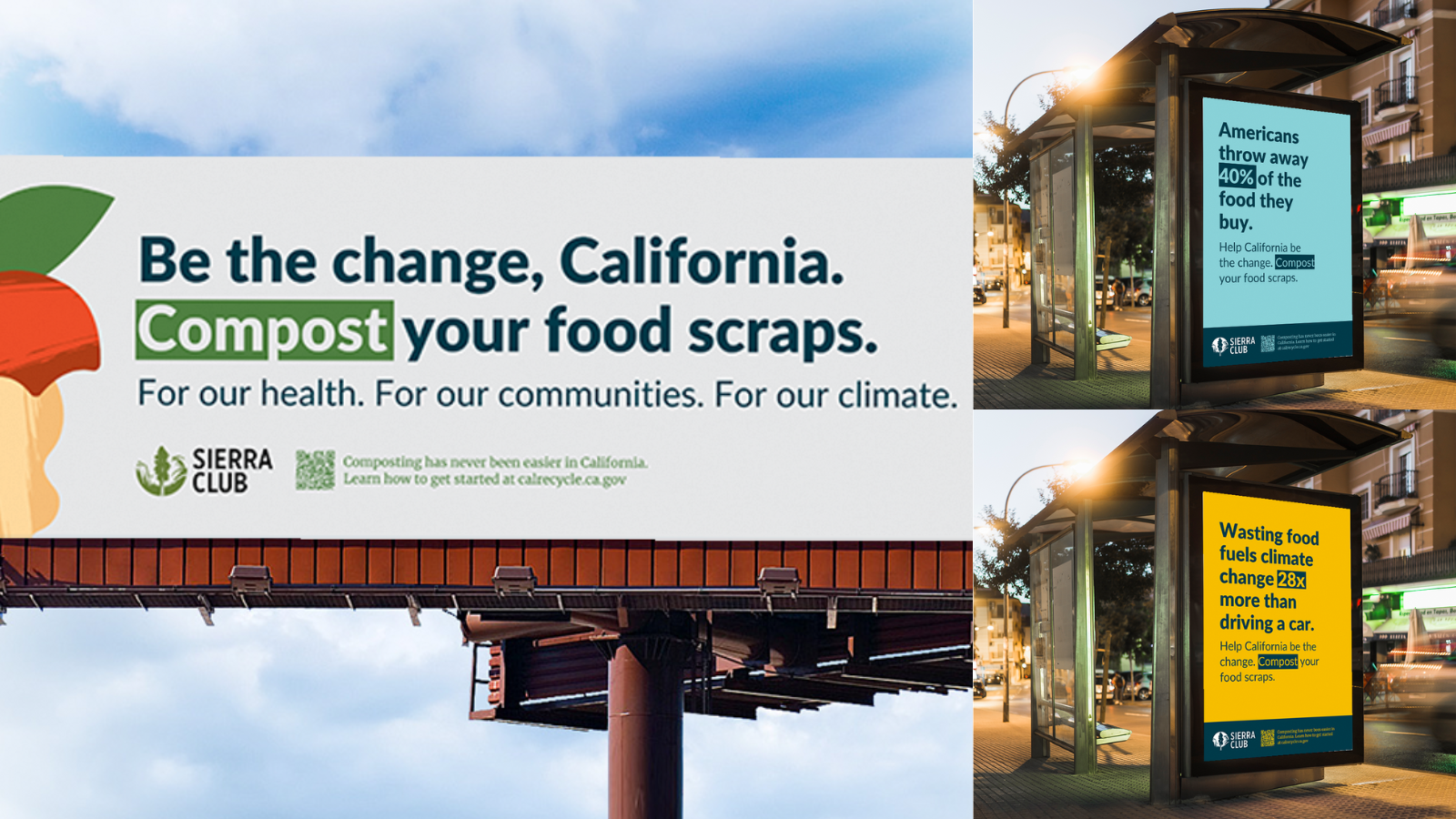Campaign Overview
For this project, I was asked to create a public education campaign for my client organization – the Sierra Club – that educates and hopefully drives behavioral change on organic waste disposal. The following campaign was produced for a midterm project in the course Multimedia Content Creation for Brand Storytelling (PR524) through USC’s Public Relations and Advertising Master’s program.
The Strategy: I chose to focus on California for a statewide campaign to 1.) raise awareness about food waste broadly, 2.) instill a sense of collective ownership in reducing food waste, and 3.) provide a call-to-action for my Californians to use state and local composting programs.
Campaign Elements: Blog post, out-of-home advertisements, and social media advertisements.
Blog
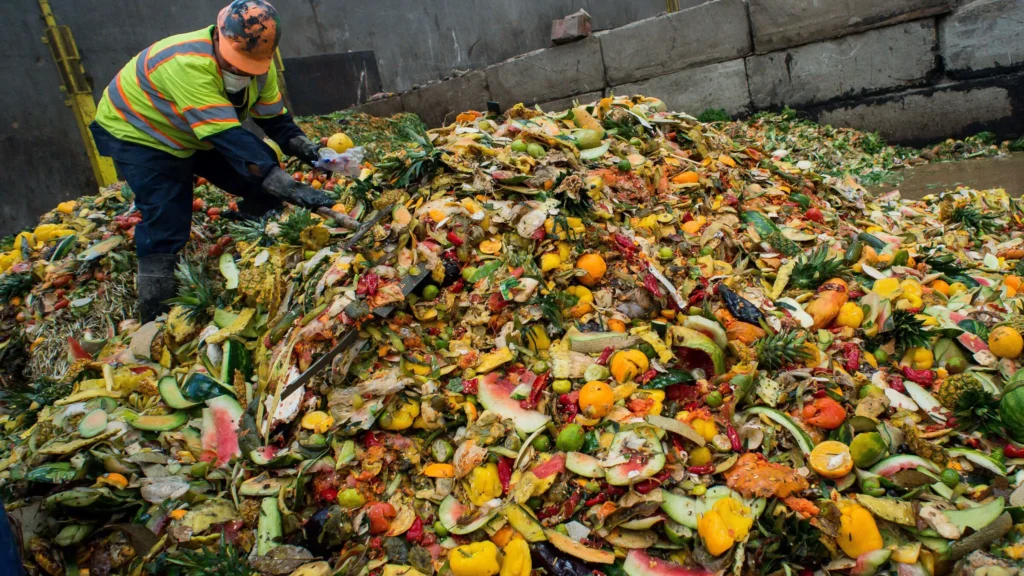

America is in a Food Waste Crisis. Here’s How California’s Organic Recycling Program Can Help
America has a food waste problem. Each year in the United States, approximately 80 million tons of food is sent to landfills where it harms local communities and contributes to climate change. Put another way, Americans throw away 40% of the food they buy, which has caused there to be more food in landfills than plastic or paper.
American households are responsible for the largest share – 43% – of thrown-away food, making residential composting a powerful tool in curbing food waste. Most Americans don’t compost, however, which is why California recently launched a statewide program to bring convenient composting services to residents of the Golden State.
The Food Waste Crisis in America and California
The millions of tons of edible food sent to American landfills each year have widespread impacts on our health, communities, and climate.

In California, the average resident throws away 24 pounds of food every month, while a family of four discards an average of $1,500 worth of food each year. Much of this food is still edible and could be diverted away from landfills to the millions of Californians facing food insecurity. Additionally, landfills, where food waste is sent, are predominately located in communities of color and low-income neighborhoods where continuous exposure to landfill pollution creates heightened risks of birth defects and other adverse health impacts.
In addition to the inequity of food waste, the millions of tons of food in landfills actively contribute to climate change. When food decomposes in low-oxygen environments such as a landfill, it produces methane gas which heats the atmosphere at 28 times the rate of the carbon dioxide produced by burning fossil fuels or driving a car.
California’s Plan for Food Waste
To address the harms perpetuated by food waste, California’s statewide Organic Waste Collection program requires that by 2025, organic waste sent to landfills is reduced by 75% and that 20% of all edible food that would otherwise be sent to landfills is sent to feed people in need. The program is important for reducing the number of hungry Californians, meeting climate goals, and reducing exposure to harmful pollution.
When considering ways to limit food waste, reducing the amount of food one buys should always be prioritized, but improving access to residential composting programs will be paramount in achieving California’s goals. Composting is the practice of recycling food scraps, leaves, and other organic material to be broken down into a fertilizer. Instead of sitting in a landfill contributing to climate change and harming local communities, food scraps can be composted into a valuable and nutrient-dense soil that increases crop growth and combats climate change.
How to Use California’s Composting and Organic Waste Collection Program
Despite households generating the largest share of food waste, most Americans don’t compost. At-home composting can be complicated and impracticable for many Americans, and only 27% currently participate in local composting programs.
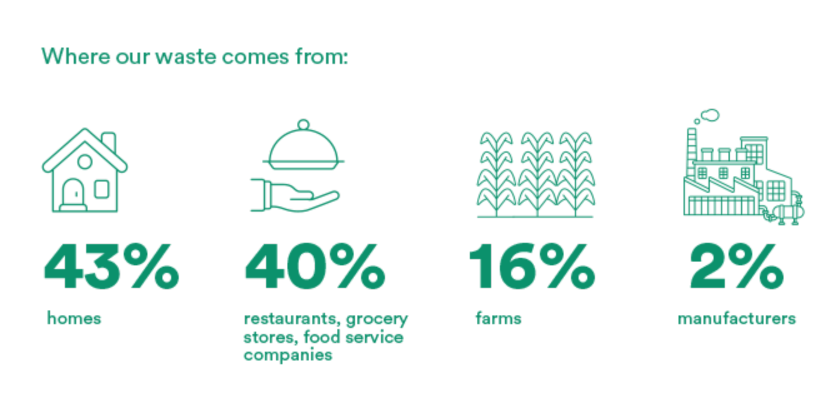
That is why California’s Organic Waste Collection program mandates that every town and city provide organic waste collection services to residents. To help eliminate compost confusion, local jurisdictions are also responsible for educating all residents and businesses about organic waste collection requirements, including what materials to put in green curbside bins.
Be the Change, California. Start Composting Your Food Scraps Today!
So if you are a California resident interested in composting but need help getting started, Cal Recycle has you covered! To learn more about the collection requirements and how to get started with your local composting program, visit CalRecycle’s website and your town’s waste collection authority. For more tips on reducing your food waste, check out the Sierra Club’s blog.
Out of Home Ads
Billboard
One billboard (14′ H x 48′ W) was created centered around the message “Be the change, California,” intending to evoke a sense of collective ownership for the food waste crisis. The high-level call-to-action of being the change through composting is accompanied by a QR code and link to CalRecycle’s website where California residents can learn how to start composting through local programs.

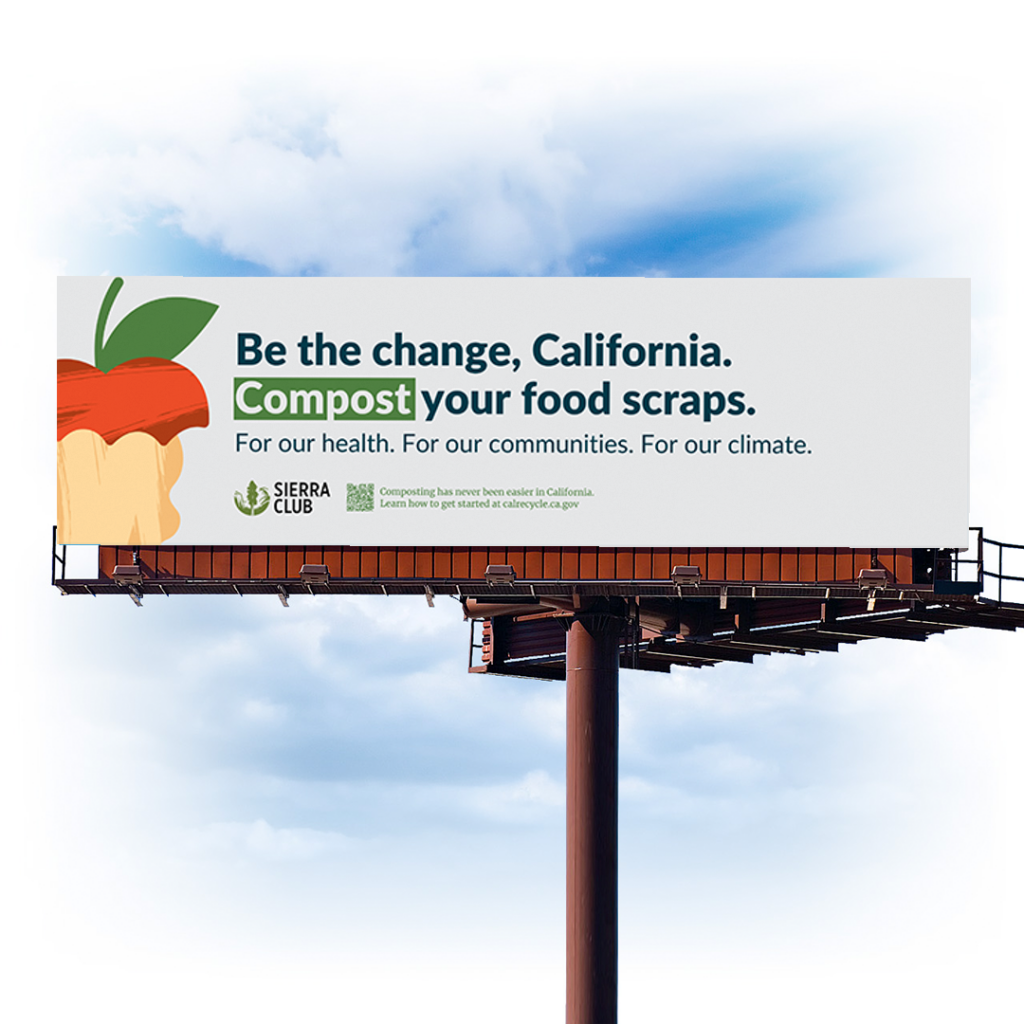
Bus Shelters
A total of four bus shelter advertisements were produced across two branded color schemes. The ads are intended to highlight specific metrics that can educate the public on the scale and impacts of the food waste crisis.






Social Media
Instagram Story
Six Instagram story slides were created to be posted on the Sierra Club’s Instagram. Taking content from the blog post above, the slides highlight the scale and impacts of the food waste crisis, the value of composting, and how Californians can reduce their food waste through a new state program.
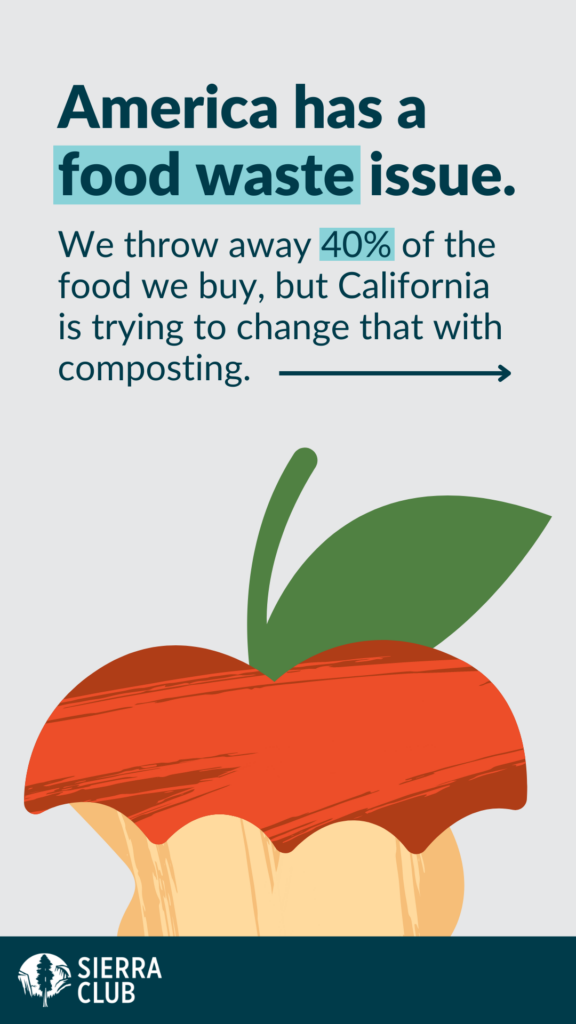

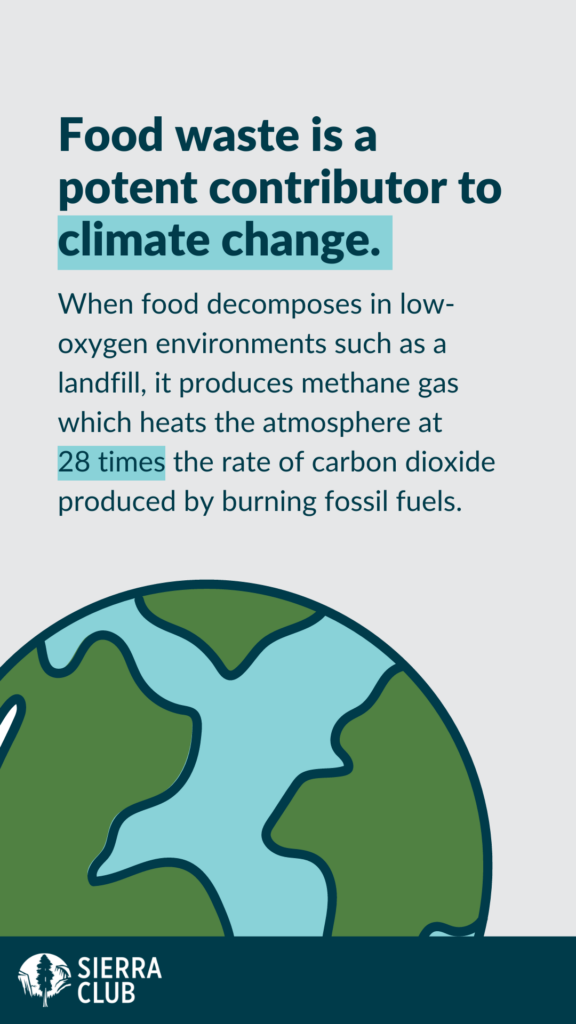
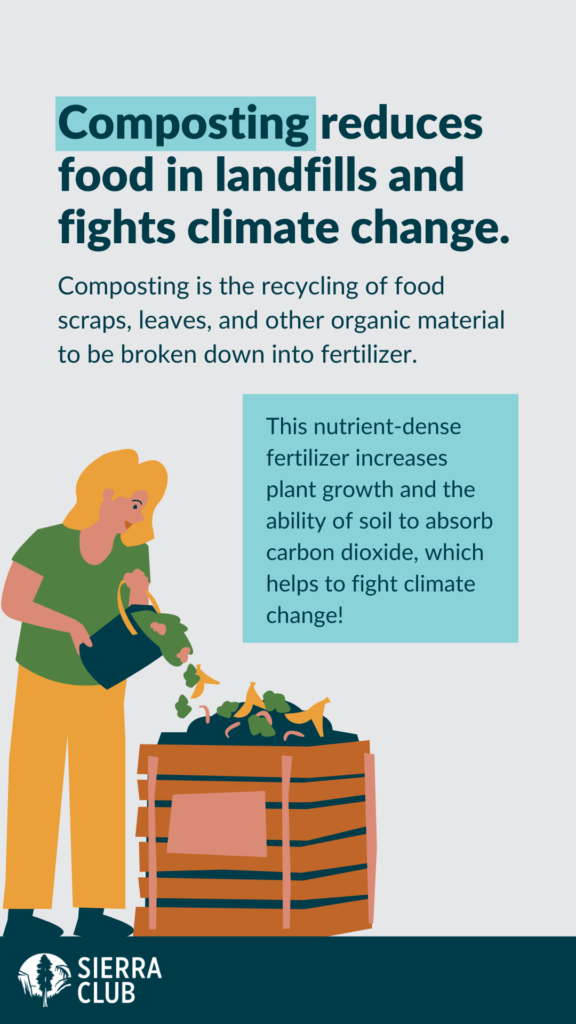
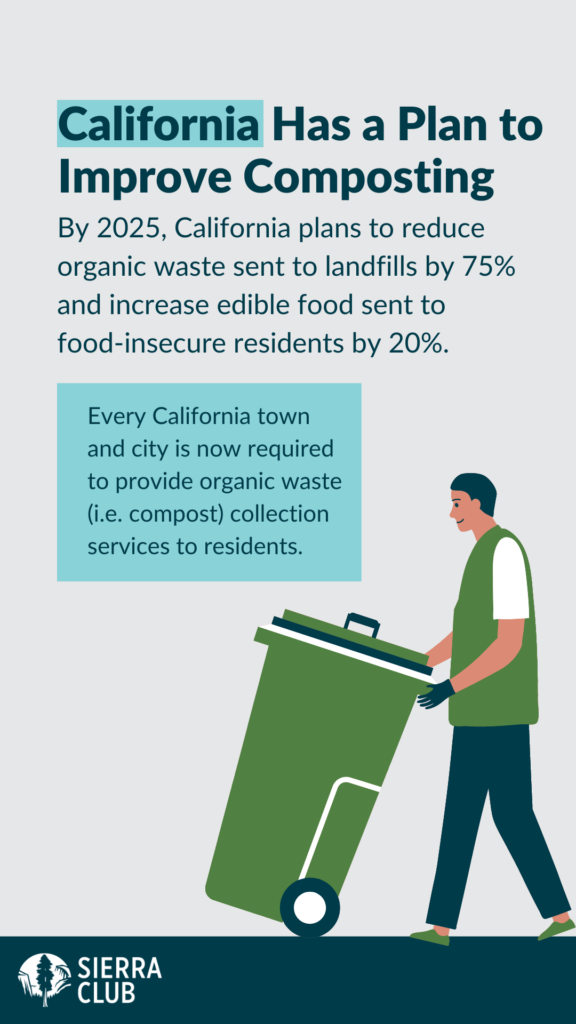
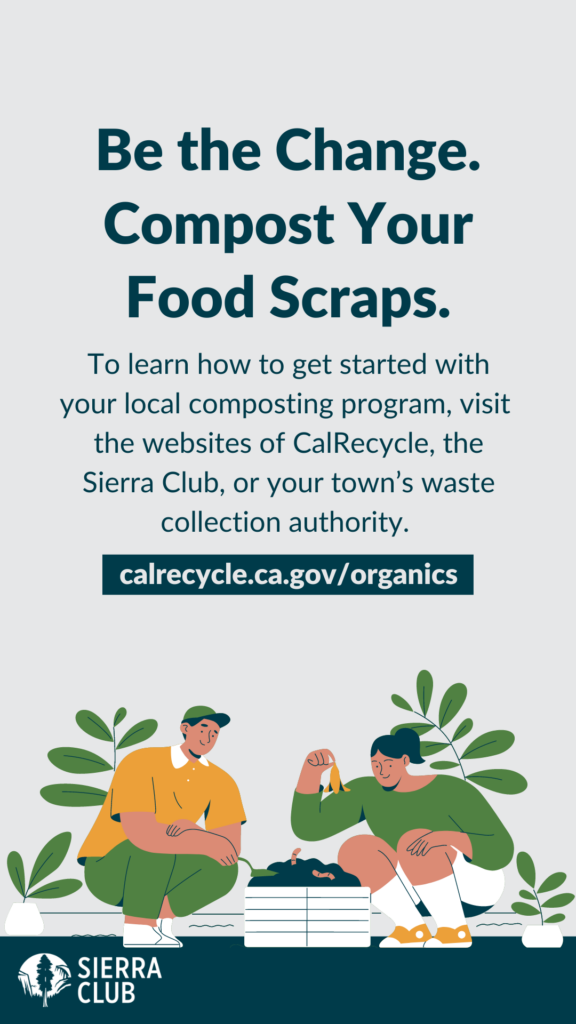
Disclaimer: All content included on this webpage was created by Dylan Macy for a class project in Multimedia Content Creation for Brand Storytelling (PR524) through the University of Southern California’s Public Relations and Advertising Master’s program. Dylan has no official affiliation with the Sierra Club or CalRecycle.
